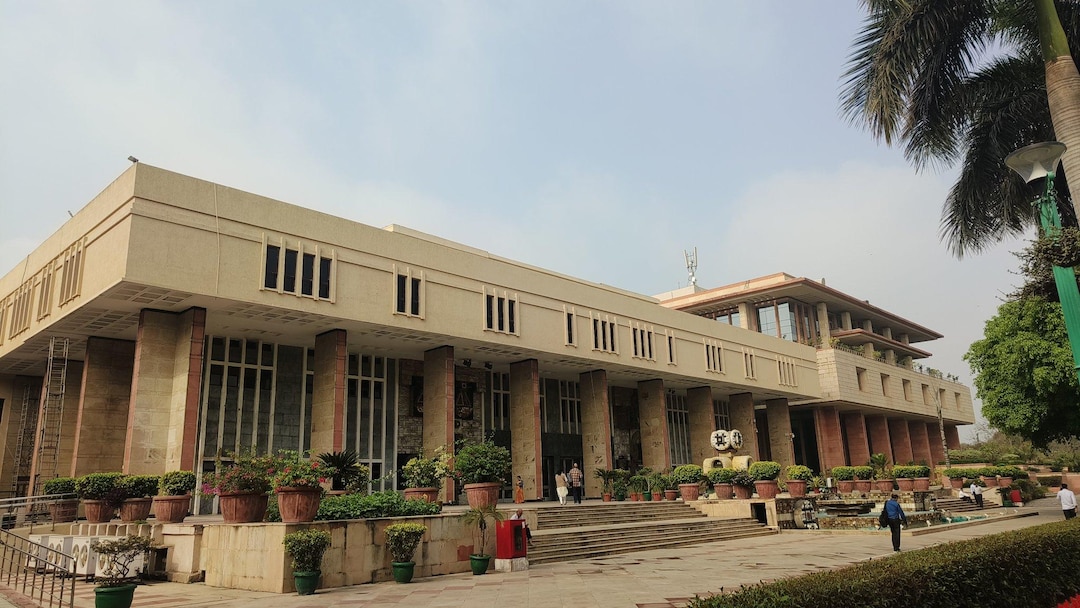


The Delhi High Court recently said that an accused person cannot be coerced to reveal the passwords of his gadgets and online accounts in view of the protection guaranteed to him under Article 20(3) (right against self-incrimination) of the Constitution of India [Sanket Bhadresh Modi v. Central Bureau of Investigation & Anr].Justice Saurabh Banerjee made the observation while granting bail to an accused in a case alleging that a company called E-Sampark Softech and its directors made about $20 million by making scam phone calls to United States (US) citizens from fraud call centres located in India.The Central Bureau of Investigation (CBI) had opposed the bail plea saying that the accused - a director of the company - was a kingpin of the scam and had failed to provide the passwords to his gadgets, email and crypto wallet accounts. In the bail order, Justice Banerjee noted that the case primarily revolves around electronic evidence on laptops, mobile phones and other sophisticated gadgets which have already been seized by the investigating agency. Thus, the Court opined that they cannot be tampered with.
The Court acknowledged that an accused is always expected to not only join the investigation but also participate in it so as to not cause any hindrance to the probe.However, it stressed that investigating agencies cannot expect anyone “to sing in a tune which is music to their ears” when they are protected under Article 20(3) of the Constitution.“Also, in the present case, as the trial is ongoing, the applicant cannot be coerced to reveal/disclose the password(s) or any other like details in view of the aforesaid protection guaranteed to him under The Constitution of India,” Justice Banerjee said.
According to the CBI, employees of the call centres would impersonate various US government officials and threaten people residing in that country with arrest, initiation of criminal case, penalty, fine or seizure of property and coerce them to pay through various means. Counsel representing the accused submitted that his father and his brother - both co-accused in the same case - already stood chargesheeted without arrest.It was also submitted that out of the 12 accused, the applicant was the only one to be arrested and that the investigation against him was complete.Looking into the facts of the case, the Court noted that those who were allegedly cheated in the case resided abroad and were far beyond the reach of the accused.Thus, it opined there were minuscule chances of the accused influencing the witnesses.
“Furthermore, it is not the case of the CBI that while the applicant was out on interim bail for the period of 203 days, he has misused the liberty or has actually (tried to) indulge in any such kind of activities,” it added.In this backdrop, the Court did not find the accused to be a flight risk.It also said that though the accused has been named in the First Information Report, his status is merely of a suspect till the final outcome of the case.
“The applicant is innocent till proven guilty. In view thereof, keeping the applicant behind bars will lead to violation of Article 21 of The Constitution of India,” the Court said while ordering release of the accused on certain conditions.Senior Advocate Dayan Krishnan with advocates Jay Kumar Bhardwaj, Surabhi Mahajan and Shreedhar Kale represented the accused.Special Public Prosecutor Anupam S Sharma with Advocates Prakash Airan, Harpreet Kalsi, Ripudaman Sharma, Abhishek Batra, Syamantak Modgill and Kashitiz Rao represented the respondents.
TAGS: Delhi High Court Accused Passwords Ongoing Trial Article 20(3) Protection